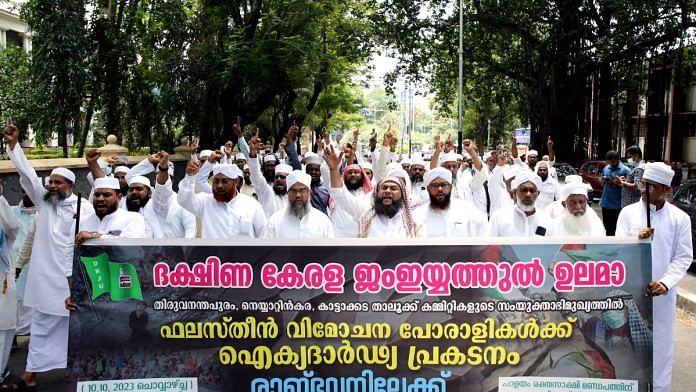The world finds itself divided into camps, each choosing sides, in the Israel-Palestine conflict, based on their moral compass. As an Indian Pasmanda Muslim, I grasp a sense of Muslim solidarity with Palestine, rooted in a narrative of enduring suffering and the loss of ancestral land despite being the indigenous population. The narratives we absorb at home and from Left-leaning circles can strongly shape our perception of reality. However, what truly disturbs me is observing individuals justifying brutal terrorist attacks on innocent civilians. The act of killing elderly individuals, children, and women, and parading their bodies cannot be labelled as resistance; it is unequivocally an act of terrorism. In the midst of this complexity, regardless of one’s stance on the conflict, denouncing such brutality by Hamas should be as straightforward as empathising with the innocent Palestinians caught in the crossfire.
The question that lingers in my mind is, even if one genuinely believes in the suffering of Palestine, how can the suffering of other innocent lives be justified? What kind of intense animosity does the victimhood narrative instil to the point of celebrating such brutality? Perhaps, in the fervour of supporting a cause, some lose sight of the broader ethical principles that should guide our perspectives.
I’ve often heard about the injustice faced by the Palestinian people, and I believe in offering prayers for their well-being. However, this issue has not been a prominent part of my life. There were many other issues that felt more immediate and crucial than the plight of Palestine. It was only later that I observed Muslim organisations and other human rights groups actively protesting for Palestine. The challenge arises when these groups begin urging India to sever ties with Israel without considering national interests. While their arguments are primarily rooted in humanity and human rights, it becomes perplexing when these same organisations do not address numerous human rights issues closer to home, such as the Kashmiri Hindu exodus or the plight of Hindus in Pakistan. This raises questions about whether their advocacy is genuinely for human rights or driven by a religious tribal mindset.
Indian Muslims should introspect and ask themselves why they often prioritise expressing concern for Muslims in distant Palestine, with whom they share little in common, over their Hindu brethren who live in India and share a common culture. How can we expect Hindus to perceive us as their own and prioritise our Indian identity when our actions might suggest otherwise?
Also Read: Hamas has defeated the cause of Palestine. A neutral India will find it difficult to tread
Against Islamic teachings
I’ve observed two key aspects. First, a section of Muslims worldwide that passionately supports the Palestinian cause sometimes loses sight of the rational understanding that Israel, like any nation, would defend its existence. The present shouldn’t be held hostage to the past, especially considering that many of the current residents of Israel are third-generation and have no say in historical events.
Second, even in the context of war, there are fundamental rules to follow. Islam explicitly prohibits the killing of non-combatants and captured combatants. Muslims are forbidden from attacking wounded soldiers unless they are still actively fighting. Abu Bakr, the First Caliph, articulated these rules for an army he dispatched to battle, emphasising principles such as avoiding treachery, refraining from mutilating dead bodies, and sparing non-combatants, including children, women, and the elderly. The guidelines also encompass respect for the environment, urging protection for trees, especially those bearing fruit, and refraining from harming the enemy’s livestock unless for sustenance.
Despite these clear directives, it appears that some Muslims, in their victimhood narrative, may overlook or neglect to adhere to these essential principles. They are ready to justify barbaric attacks on innocent civilians.
Justifying violence by oppressed communities has a fundamental flaw. The argument here is that marginalised groups lack moral agency or responsibility. Muslims should recognise that this contradicts the fundamental teachings of Islam. Following the righteous path is not conditional. The goal should be to achieve peace, not revenge. We cannot hold peace hostage to the past. If we desire a better future for our own children, peace is the only way forward.
Amana Begam Ansari is a columnist and TV news panelist. She runs a weekly YouTube show called ‘India This Week by Amana and Khalid’. She tweets @Amana_Ansari. Views are personal.
(Edited by Theres Sudeep)



